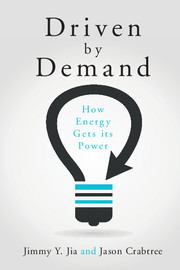Book contents
- Frontmatter
- Dedication
- contents
- List of figures
- List of tables
- Acknowledgments
- Part I Introduction
- Part II Three frameworks
- Part III Critical decisions
- Part IV Energy futurism
- 10 Towards better management of energy infrastructures
- 11 Risk management in energy
- 12 Resilience as a core value
- 13 Exploring energy security
- 14 Energy-as-a-service
- Part V Societal advancement
- References
- Index
12 - Resilience as a core value
from Part IV - Energy futurism
Published online by Cambridge University Press: 05 June 2015
- Frontmatter
- Dedication
- contents
- List of figures
- List of tables
- Acknowledgments
- Part I Introduction
- Part II Three frameworks
- Part III Critical decisions
- Part IV Energy futurism
- 10 Towards better management of energy infrastructures
- 11 Risk management in energy
- 12 Resilience as a core value
- 13 Exploring energy security
- 14 Energy-as-a-service
- Part V Societal advancement
- References
- Index
Summary
Resilience is the capacity of individuals, communities, companies, and the government to withstand, respond to, recover from, and adapt to disruptive events.
Steve Flynn (2012)Our society has steadily created more complex and co-dependent or interdependent critical infrastructure systems. We have become especially dependent on the availability of reliable electricity. As a result of this complexity and dependence, we have become subject to new risks that are often misunderstood or ignored entirely. Today's sudden fixation with big data—which really is a euphemism for the utilization of heuristics and inferential statistical models to aid in decision-making—is more dangerous as a result of our inability to view these dependencies and our increased levels of comfort with the increasingly stable services that technology has enabled, especially when compared to most of human history. As the mean time between failures of all types increases, so does the perception of safety; thus, the allocation of capital to develop technologies or invest in infrastructure which prioritizes resilience over efficiency lags ever farther behind the actual level of risk.
Big data tools—which are often misunderstood as being capable of determining causality, despite their absolute limitation of determining degree of correlation as a black box—are further accelerating the optimization of our businesses, processes, investment strategies, etc. for an increasingly narrow operational band. Put differently, big data is only capable of utilizing the information made available to it to determine strategies that are highly correlated with a positive outcome based on its training data set. The training data is empirical: making decisions in this manner is akin to driving using only a rearview mirror. Empirical data, by definition, represents system states which have already been experienced, and extrapolation is often fraught with challenges.
New events, real-world occurrences which occur outside the band, and especially sustained system changes outside the expectations of the trained data set, are often inimical to such an approach.
- Type
- Chapter
- Information
- Driven by DemandHow Energy Gets its Power, pp. 236 - 257Publisher: Cambridge University PressPrint publication year: 2015

